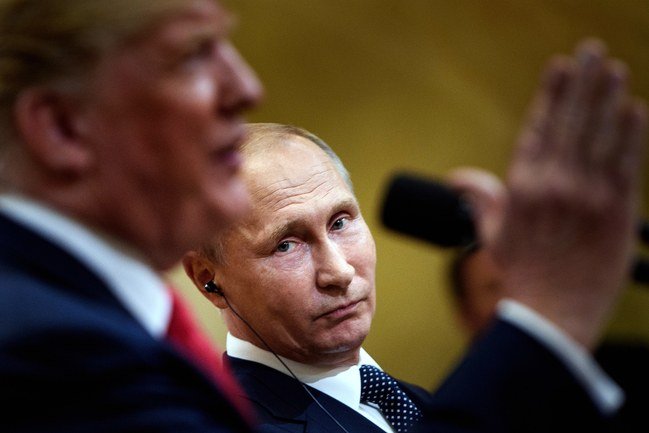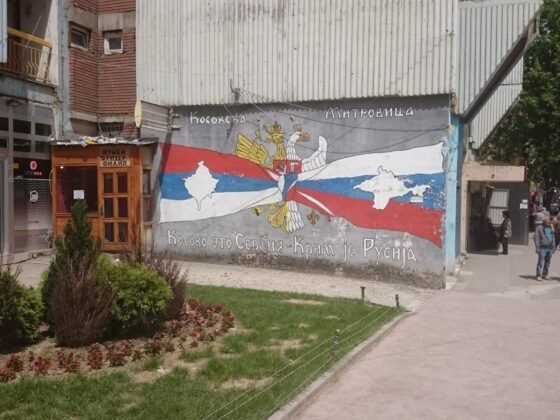(The New Yorker) The former C.I.A. operative Jack Devine watched Donald Trump’s performance standing next to Vladimir Putin in Helsinki on Monday, and his first thought was, “There is no way Trump is a Russian agent.” The proof, he told me, was right in front of us. If Trump were truly serving as a Russian intelligence asset, there would have been an obvious move for him to make during his joint press conference with Putin. He would have publicly lambasted the Russian leader, unleashing as theatrical a denunciation as possible. He would have told Putin that he may have been able to get away with a lot of nonsense under Barack Obama, but all that would end now: America has a strong President and there will be no more meddling. Instead, Trump gave up his single best chance to permanently put to rest any suspicion that he is working to promote Russian interests. […]
Keith Darden, an international-relations professor at American University, has studied the Russian use of kompromat—compromising material—and told me that he thinks it is likely that the President believes the Russians have something on him. “He’s never said a bad word about Putin,” Darden said. “He’s exercised a degree of self-control with respect to Russia that he doesn’t with anything else.” Darden said that this is evidence that Trump isn’t uniformly reckless in his words: “He is capable of being strategic. He knows there are limits, there are bounds on what he can say and do with respect to Russia.”
Because the word kompromat is new to most Americans, and has been introduced in the context of a President whose behavior confuses many of us, it is natural to assume that it must be a big, rare, scary thing, used in extraordinary circumstances to force compliance and achieve grand aims. But, Darden explained to me, kompromat is routinely used throughout the former Soviet Union to curry favor, improve negotiated outcomes, and sway opinion. Intelligence services, businesspeople, and political figures everywhere exploit gossip and damaging information. However, Darden argues, kompromat has a uniquely powerful role in the former Soviet Union, where the practice is so pervasive, he coined the term “Blackmail State” to describe their way of governance. […]
Read More © The New Yorker











